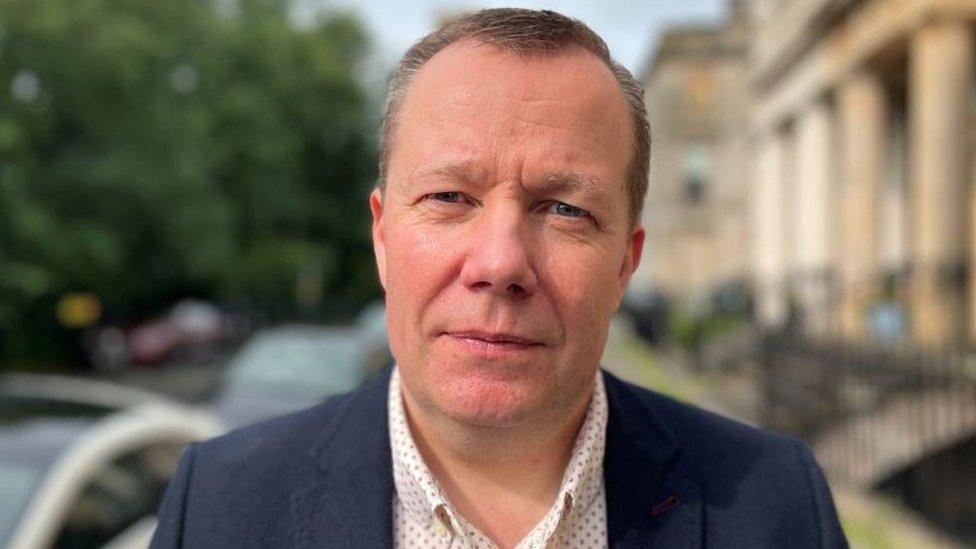Nicola Sturgeon's Covid WhatsApp messages were deleted - newspaper report
- Published
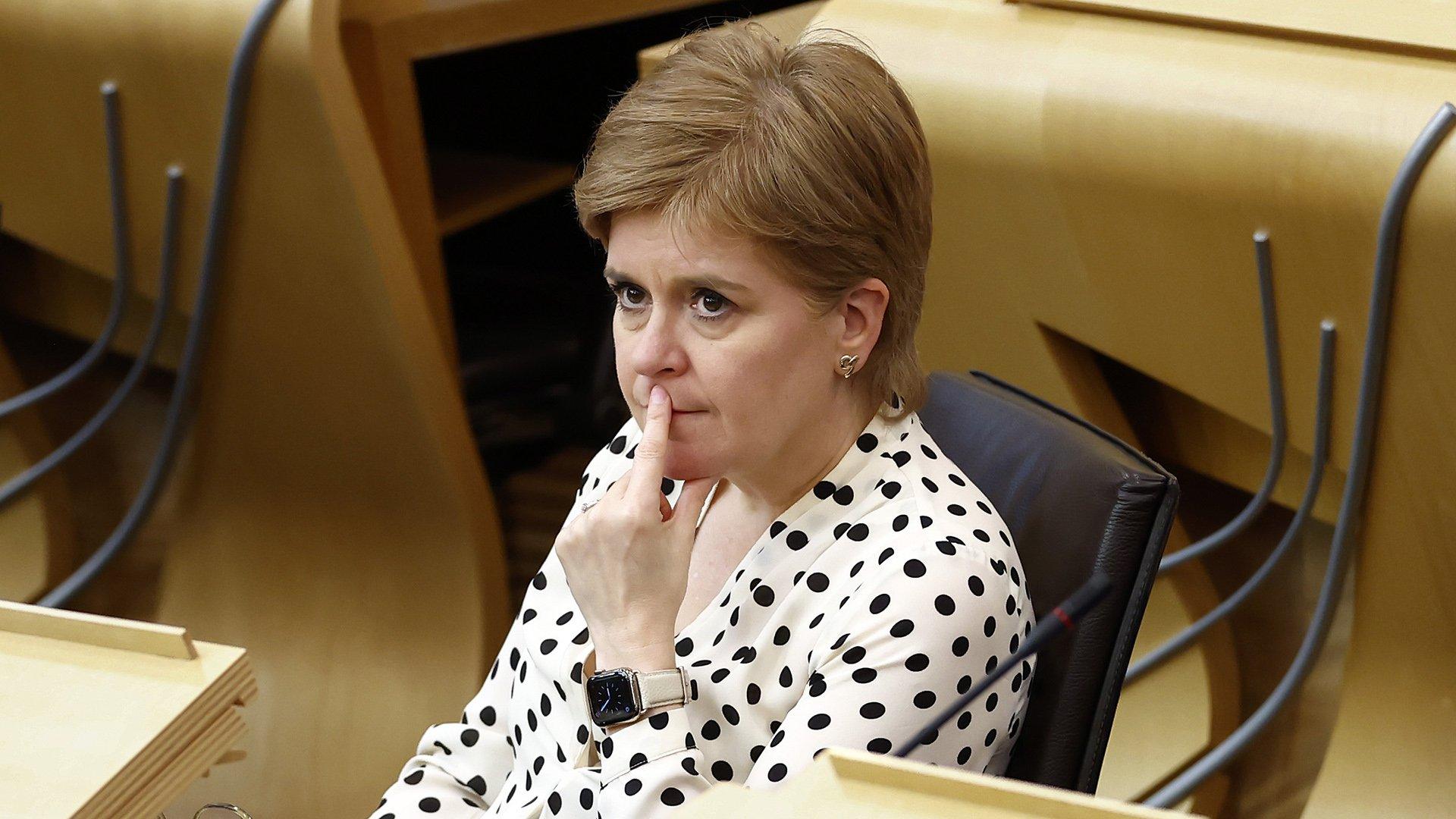
Nicola Sturgeon's spokesperson said she was co-operating with the UK and Scottish Covid inquiries
WhatsApp messages sent by Nicola Sturgeon relating to the Covid pandemic were manually deleted from her phone, a newspaper has reported.
The Sunday Mail, external says the former first minister is among 70 Scottish government figures whose pandemic communications were not retained.
It means these messages cannot be given to the UK or Scottish Covid inquiries into how the pandemic was handled.
Ms Sturgeon's spokesperson said she was co-operating with both inquiries.
It was also reported that, according to UK Covid inquiry documents, WhatsApp data from First Minister Humza Yousaf and former deputy first minister John Swinney no longer exists.
It comes after Scottish ministers faced criticism last week for not handing over their messages.
The UK inquiry was told by a lawyer that 70 individuals were asked for their WhatsApp messages, but "very few appear to have been retained".
On Thusday, it was also reported that national clinical director Jason Leitch deleted messages every day during the pandemic.
It emerged there were at least 137 WhatsApp groups being used across the Scottish government and its agencies during Covid.
Deputy First Minister Shona Robison is expected to make a statement to Holyrood on the issue in the coming days.
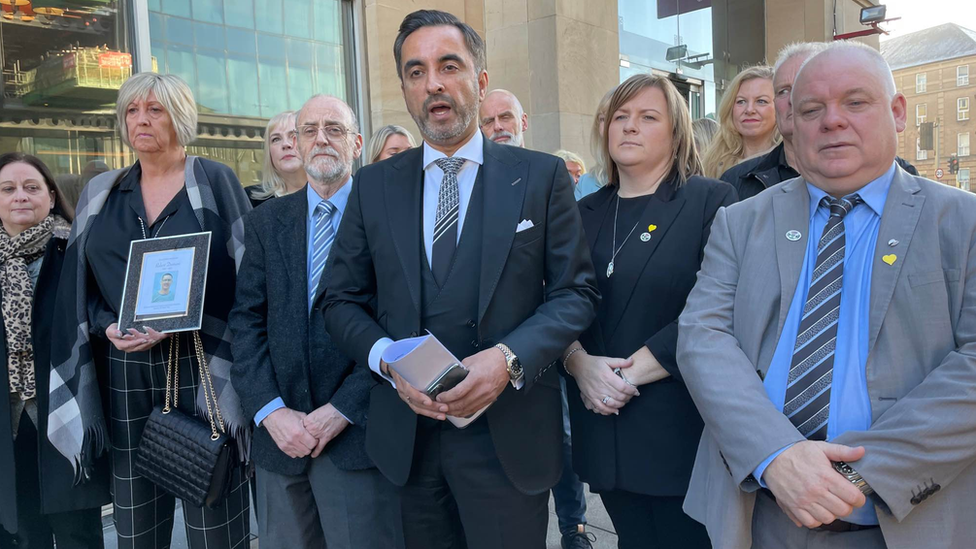
Solicitor Aamer Anwar (centre) is representing members of the Scottish Covid Bereaved campaign group
Aamer Anwar, lead solicitor for Scottish Covid Bereaved families group, told BBC Scotland's The Sunday Show that the Scottish government had not given details of when messages were deleted.
He highlighted that Ms Sturgeon announced in May 2020 that there would be a Scottish Covid inquiry, which was later confirmed in August 2021.
Mr Anwar said: "From May 2020, if there was a position of auto-delete, if there was a situation where government ministers and senior civil servants were deleting their WhatsApps, it should have been ordered to stop.
"We want to know when was the deletion brought in, who ordered it, why was it not ordered to be stopped?
"And did they continue after the event? Because that's deletion of material."
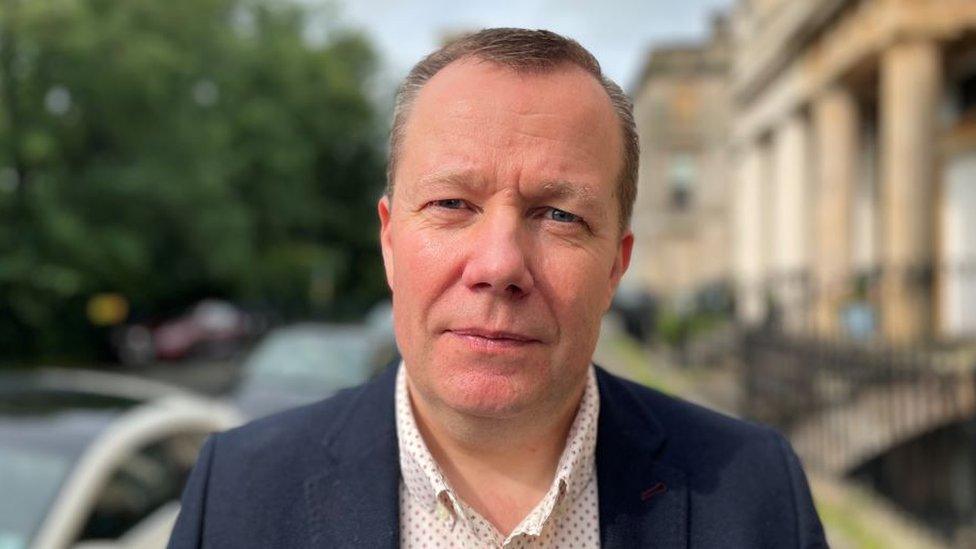
Jason Leitch was reported to have deleted messages daily during the pandemic
The Scottish government said it was committed to co-operating with the inquiry and providing any requested material that it holds.
A Scottish government spokesperson said: "As the first minister has made clear, the Scottish government is wholly committed to co-operating fully with the Covid inquiries. This includes providing any requested material that we hold.
"More than 13,000 documents from the official record have been sent to the UK Inquiry from the Scottish Government, in addition to the corporate and personal statements requested. Providing the formal decision-making record has been our priority.
"The UK inquiry has subsequently asked for WhatsApp messages relating to logistics and day-to-day communication, which we are working to provide."
A spokesperson for Ms Sturgeon said she would continue to provide all information requested by the UK and Scottish Covid inquiries.
They said: "She has recently submitted her third written statement to the UK inquiry - running to around 200 pages - and expects to give oral evidence again next year when she will answer all questions put to her."


The Scottish government insists that decisions are made through formal channels, and that 13,000 documents relating to the pandemic have been handed over to the UK Covid inquiry.
But this comes at a moment where the inquiry has been poring over huge logs of communications between ministers and officials at a UK level - and seems to have found plenty of interest.
Think of the messages from the now chief scientific officer, describing Rishi Sunak as "Dr Death" at the time of the Eat Out To Help Out scheme
That doesn't capture a decision-making moment, but it is interesting context on the atmosphere within government and the state of mind of key players.
Counsel to the inquiry might feel it is absolutely relevant to their deliberations - and moreover, that they are entitled to decide for themselves what is relevant.
If it does turn out that "very few" messages have been retained in Scotland, as suggested, they will certainly be asking why.
Related topics
- Published27 October 2023
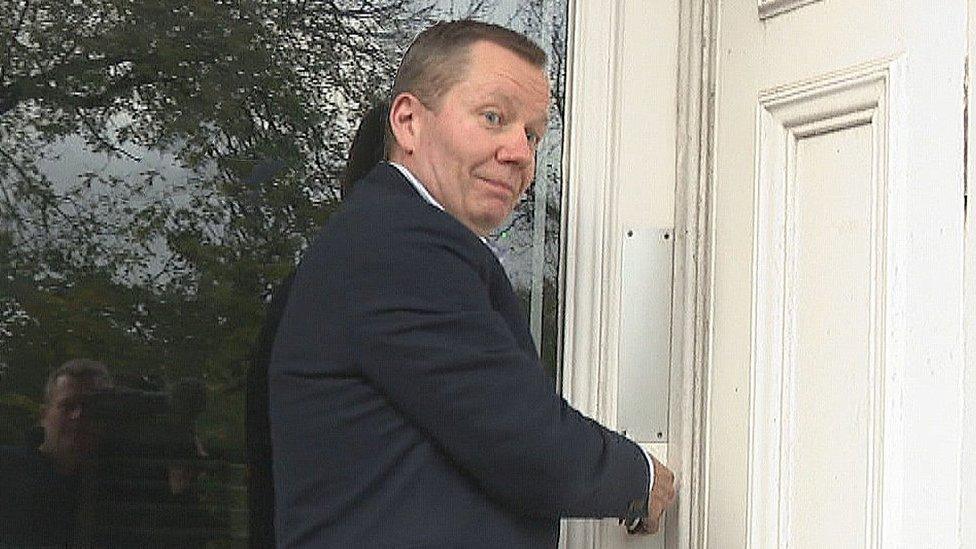
- Published26 October 2023
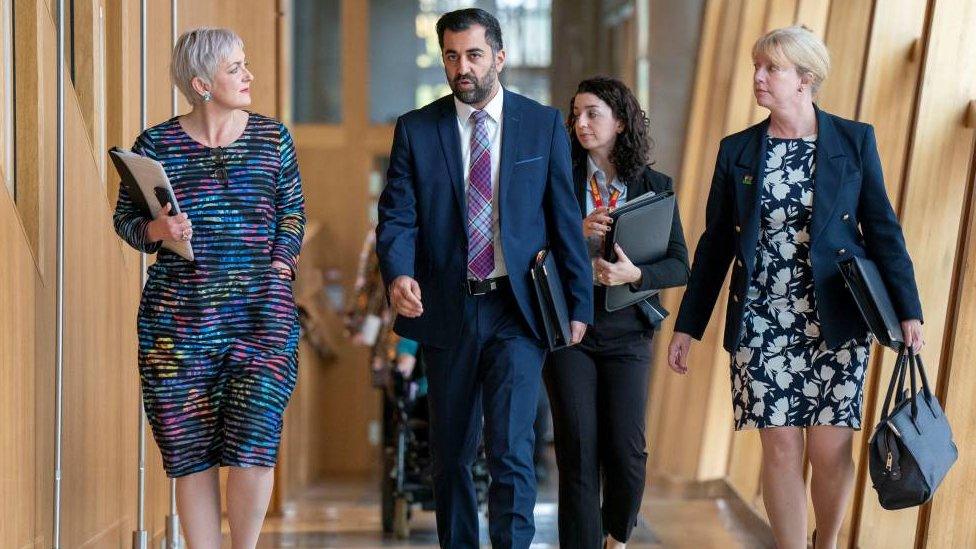
- Published27 October 2023
